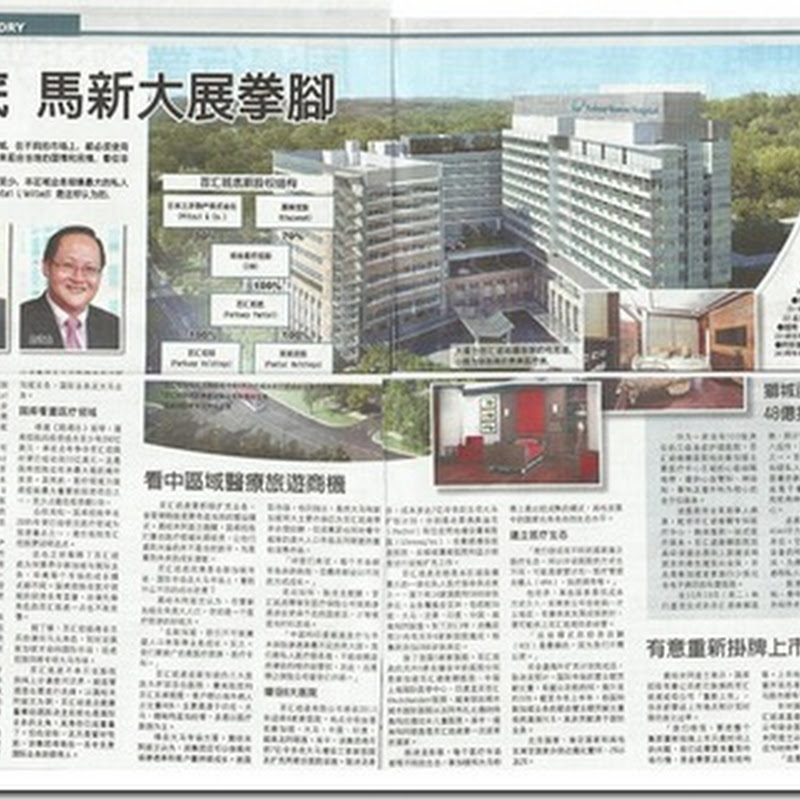It is a cash and assets rich company. As at Dec 31, 2009, the group was sitting on a cash pile of RM332 million with zero gearing. Its reserves stood at RM951 million as at Dec 31, 2009 made up mostly of retained earnings. It also had a high untilised tax credit of RM427 million to be franked as dividends before end 2013.
However, its director say the group has accumulated a huge cash pile for several years now, as it is waiting for acquisition opportunities such as properties and land.
As Keck Seng has until 2013 to utilise its tax credits, the group is not in a hurry to unlock the dividend income to its shareholders.
It is believed that Keck’s Seng real value may emerge from this financial year onwards due to the compulsory disclosure of the market value of its financial assets beginning in 2010.
Keck Seng, which has a sizeable share investment portfolio, benefited strongly from the improvement in global equity markets with income from share investments.
But there may be more to come. Under the FRS 139 that has been effective since Jan 2010, public listed companies are required to fair value their equity investments and reflect unrealised gains or losses in quarterly financial statements.
Keck Seng’s 4Q2009 financial results show that although the total value of its quoted securities is rm254million, the market value as at Dec 31, 2009 stood at RM672 million. This translates to 2.74 times surplus over its book value, or an increase in net assets of RM1.78 a share. However, up to FY2009, the market value was only disclosed as part of the notes to accounts and not reflected yet in its net asset value.
It is learnt that Keck Seng has interested in various local and foreign companies, including Singapore’s Parkways Holdings Ltd, PPB group, Chin Teck Plantations Bhd and Shangri-La Ltd.
Based on calculations that corporate the market value of share investments, Keck Seng’s NAV per share will balloon to RM6.76 from RM4.98 currently (March 2010).
The group’s NAV will reflect the fair value of its share investments in the 1QFY2010 financial results, which will be announced in May 2010. The impact will depend on the classification of its share investments, which the group’s auditors are still working on.
Should Keck Seng’s share investments be classified under held for trading, the unrealised gains or losses on the investments will be reflected in its income statements. But if they are held under the available for sale portfolio, it will impact the group’s balance sheet.
Keck Seng’s officials say that they are held for the long term. However whether or not the quoted securities are parked under held for trading or available for sale, the impact will be reflected in Keck Seng’s net assets.
Additionally, the new estimated NAV does not take into account the market value of Keck Seng’s investment properties and landbank Keck Seng is still using the cost method to value its landbank and properties, but when the land is developed, the group will have to fair value the land to market prices.
The group’s land for agriculture and housing development with various parcels in Johor, have not been revalued since 1980. The book value of the land stood at RM147 million as at Dec 31, 2008. Conservative estimates show that the parcels of land could be valued at more than RM2.46 billion, representing a surplus of RM2.3 billion.
Based on estimates and recent transactions (early 2010), should Keck Seng’s entire landbank, properties and equity investments be revalued, it can lead to a revised NAV per share of RM17.10 or an absolute amount of RM4 billion.
However, Keck Seng’s is not required to revalue its properties and landbank according to market value unless it plans to sell or develop them.
Scan 09 Jan 2026
-
Symbol Type Date Close Price Volume 13 Day RSI
ABMB Overbought 2026-01-09 5.15 4031300 76.45
AMBANK Overbought 2026-01-09 6.48 3737200 71.07
DAYANG Overboug...
22 hours ago





















































1 comment:
Thanks for the great article.
Wow! 17 for a share now selling at below 5. Grape some quick! Soon you won't be able to get it that cheap. Don't be the first to sell and the last to buy.
Post a Comment